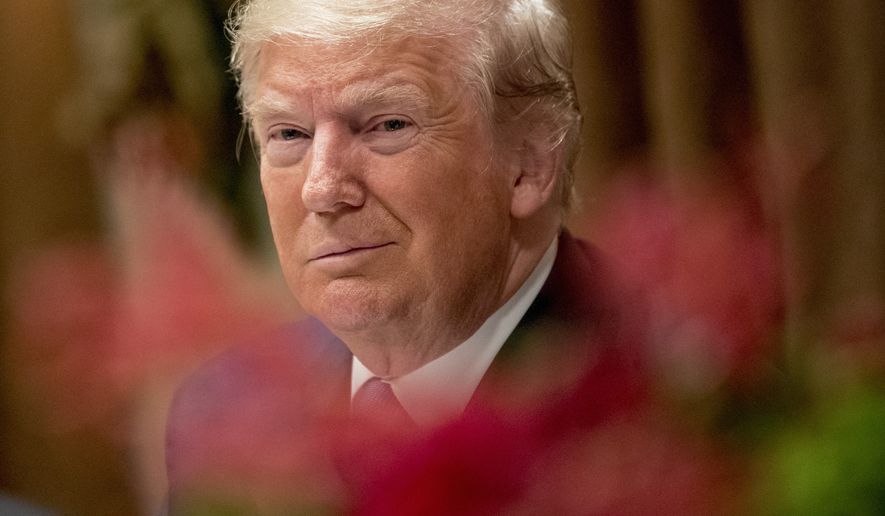OPINION:
As the most powerful nation on Earth prepares to go to the polls in November, decisions will be made that will affect not only the next four years of American politics but also the lives of countless people around the world.
Some geopolitical experts state that in our unstable global environment, a new international order and even existential questions of war and peace will also be affected. This is why they rush to express their opinions in the hope of influencing the results of the elections.
Writing in Foreign Affairs, professors Alexander Cooley and Daniel H. Nexon (“How Hegemony Ends: The Unravelling of American Power”) express their deep nostalgia for the good old days of a hegemonic U.S. acting as the undisputable world leader, calling for the restoration of global housekeeping that “will require a clear repudiation of Trumpism in the United States.”
Getting the house in order is definitely good advice in light of leading political factions using unheard-of humiliating and obscene rhetoric against one another plus continual race riots and violence across the country. All this hardly bolsters America’s claims for world leadership. However, believing that a perpetuation of U.S. hegemony can be achieved by removing President Trump, as Council on Foreign Relations President Richard Haass has written, is definitely an obvious illusion, especially if you know whom he is backing to take Mr. Trump’s place.
In his article “Present at the Disruption: How Trump Unmade U.S. Foreign Policy,” Mr. Haass talks about the greatness of neoliberalism and Cold War thinking until a “disruption” happened in 2016. Mr. Haass wishes us to strain our imaginations to overlook the hundreds of thousands of lives, millions of refugees and trillions of dollars wasted in endless wars, failed regime change policies, birth of ISIS, outsourced industries, and over-bloated speculative bubbles to presume that the “status quo” governing the world until 2016 somehow served America’s best interests.
Mr. Haass also hopes that Joseph R. Biden’s election could undo Trumpism and restore the world order to its rightful place. In this scenario, Mr. Trump would become a mere aberration of history as the “great” traditions of Presidents Clinton, Bush and Obama would be restored. Let us evaluate Mr. Biden’s foreign policy achievements during his 47-year occupation of high-level political offices that would justify his election.
As a senator, he voted in October 2002 for the war in Iraq, one of the most disastrous decisions in the history of the United States. As a vice president in the Obama administration, he and Secretary of State Hillary Clinton were enthusiastic supporters of the destruction of one of the most prosperous Arab states when they led the “humanitarian bombing” of Libya and barbaric killing of Moammar Gadhafi. Under Mr. Biden’s watch, as Mr. Obama’s point man in Ukraine, this once-powerful industrial and agricultural country became the poorest in Europe.
Meanwhile, as this destruction was befalling Ukraine, Mr. Biden’s son Hunter, using his father’s name and status, was making millions of dollars as a board member of one of Ukraine’s most corrupt oil and gas companies, Burisma.
What good have all these “achievements” done for America and the world? Mr. Trump was right when he said in his inaugural speech that the government “spent trillions and trillions of dollars overseas while America’s infrastructure has fallen into disrepair and decay” and when he told West Point cadets at their commencement ceremony in June that “we are not the policemen of the world.” These words are anathema to the hegemons.
Of course, there is one “gain” they can claim: turning Ukraine into an anti-Russian zone of chaos at the cost of breaking centuries-old family, religious and economic ties between two Slavic nations. However, this gain is only for those whose motto is still the same “Divide et Impera” — “Divide and Rule” — that has been an ancient tactic used by empires from time immemorial who wished to maintain their dominance as hegemons over smaller powers and clusters of subjects. Although this time-worn tactic accomplishes short-term gains, history is littered with records of collapsed empires serving as constant reminders that it never contributes to long-term success. The fact is that a more potent option has existed throughout America’s past and may yet be revived should Mr. Trump get another chance and, most important, learns from his mistakes (which are many), especially in the realm of foreign policy.
Brown University professor Samuel Zipp, in his article “The Postwar Global Order That Never Happened,” introduces readers to the more genuine American traditions that were defended by Franklin D. Roosevelt’s closest allies, with a focus on the work of former Republican Party leader Wendell Willkie. Mr. Zipp reveals that this pre-Cold War American foreign policy was not isolationist and not imperialist but very much directed by a U.S.-Soviet-Chinese-led reorganization of the world political and financial system. Replacing communist USSR with now capitalist Russia makes this triangular great power relationship even more appealing in today’s world, especially if you consider the unimaginable costs of their rivalry.
The upcoming 75th U.N. General Assembly session provides an excellent venue for Mr. Trump to make a foreign policy breakthrough by talking in person or online with Russian President Vladimir Putin and Chinese President Xi Jinping about win-win cooperation and development for all people alongside other nations. Another option is to allow hegemons to hold onto their Cold War mentality and to continue our sleepwalking into a nuclear holocaust.
Edward Lozansky is president of the American University in Moscow.




Please read our comment policy before commenting.